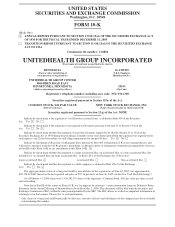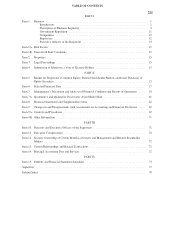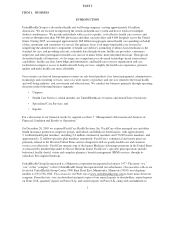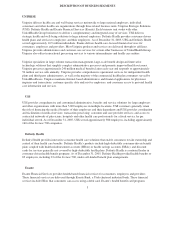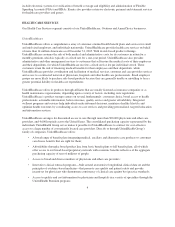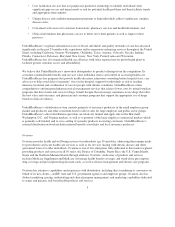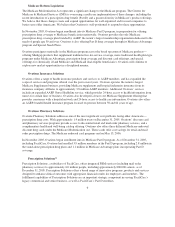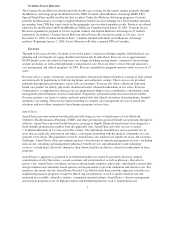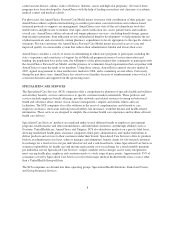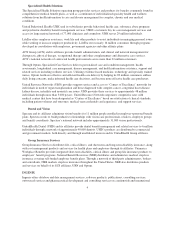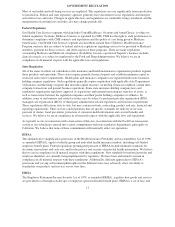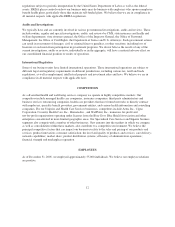United Healthcare 2005 Annual Report Download - page 6
Download and view the complete annual report
Please find page 6 of the 2005 United Healthcare annual report below. You can navigate through the pages in the report by either clicking on the pages listed below, or by using the keyword search tool below to find specific information within the annual report.include electronic systems for verification of benefit coverage and eligibility and administration of Flexible
Spending Accounts (FSAs) and HRAs. Exante also provides extensive electronic payment and statement services
for health care providers and payers.
HEALTH CARE SERVICES
Our Health Care Services segment consists of our UnitedHealthcare, Ovations and AmeriChoice businesses.
UnitedHealthcare
UnitedHealthcare offers a comprehensive array of consumer-oriented health benefit plans and services for small
and mid-sized employers, and individuals nationwide. UnitedHealthcare provides health care services on behalf
of more than 14 million Americans as of December 31, 2005. With its risk-based product offerings,
UnitedHealthcare assumes the risk of both medical and administrative costs for its customers in return for a
monthly premium, which is typically at a fixed rate for a one-year period. UnitedHealthcare also provides
administrative and other management services to customers that self-insure the medical costs of their employees
and their dependents, for which UnitedHealthcare receives a fixed service fee per individual served. These
customers retain the risk of financing medical benefits for their employees and their dependents, while
UnitedHealthcare provides coordination and facilitation of medical services, customer and care provider services
and access to a contracted network of physicians, hospitals and other health care professionals. Small employer
groups are more likely to purchase risk-based products because they are generally unable or unwilling to bear a
greater potential liability for health care expenditures.
UnitedHealthcare offers its products through affiliates that are usually licensed as insurance companies or as
health maintenance organizations, depending upon a variety of factors, including state regulations.
UnitedHealthcare’s product strategy centers on several fundamentals: consumer choice, broad access to health
professionals, actionable information, better outcomes, quality service and greater affordability. Integrated
wellness programs and services help individuals make informed decisions, maintain a healthy lifestyle and
optimize health outcomes by coordinating access to care services and providing personalized, targeted education
and information services.
UnitedHealthcare arranges for discounted access to care through more than 500,000 physicians and other care
providers, and 4,600 hospitals across the United States. The consolidated purchasing capacity represented by the
individuals UnitedHealth Group serves makes it possible for UnitedHealthcare to contract for cost-effective
access to a large number of conveniently located care providers. Directly or through UnitedHealth Group’s
family of companies, UnitedHealthcare offers:
• A broad range of benefit plans integrating medical, ancillary and alternative care products so customers
can choose benefits that are right for them;
• Affordability through a broad product line from basic benefit plans to full benefit plans, all of which
offer access to our broad-based proprietary network with economic benefits reflective of the aggregate
purchasing capacity of tens of millions of people;
• Access to broad and diverse numbers of physicians and other care providers;
• Innovative clinical outreach programs—built around an extensive longitudinal clinical data set and the
principles of evidence-based medicine—that promote care quality and patient safety and provide
incentives for physicians who demonstrate consistency of clinical care against best practice standards;
• Access to quality and cost information for physicians and hospitals in a variety of specialties through the
UnitedHealth Premium program;
4

